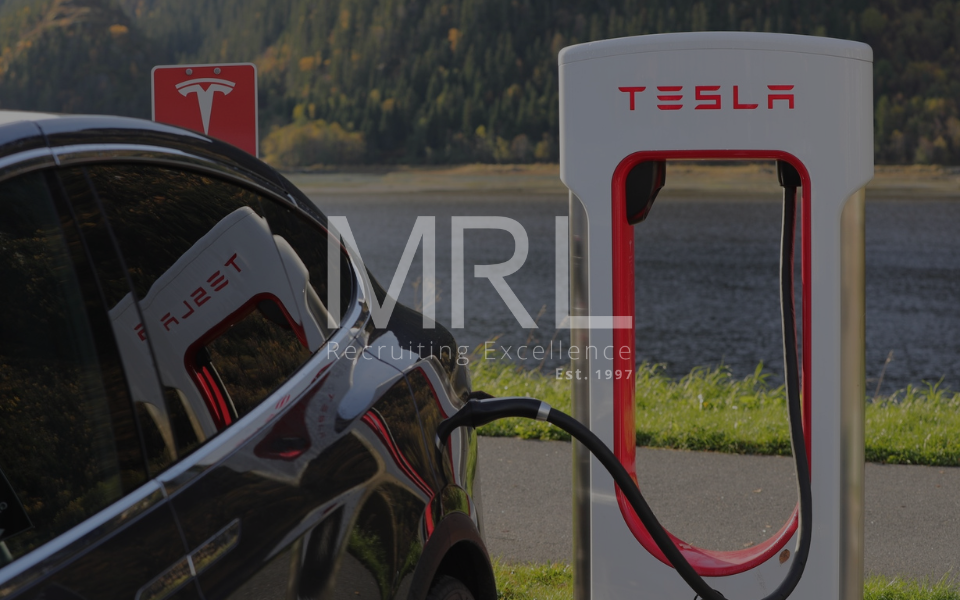Will Tesla Remain the EV Market Leader?
28 Sept, 20235 minutesWill Tesla Remain the EV Market Leader?In 2008, Tesla exploded onto the car scene with the r...

Will Tesla Remain the EV Market Leader?
In 2008, Tesla exploded onto the car scene with the release of its first fully electric vehicle, the Roadmaster. With the ability to drive 245 miles (394 km) on a single charge, the Roadmaster was the first of its kind (the first that could successfully be compared to traditional gasoline vehicles).
Since then, Tesla has only grown in popularity and has become renowned for its innovative designs, helping the company to secure a significant market share in the US market.
However, Tesla’s electric vehicles are also known for their luxury price tag. And as technological advancements have broken down the respective barriers, competitors have been able to start producing their own electric vehicles at a much lower cost.
Considering this, one may wonder whether Tesla will remain the EV market leader in future or not. In this blog, we take an in-depth look at Tesla’s rise to fame, its competitors, and how the odds stack up.
How Did Tesla Become the EV Market Leader?
Today, Elon Musk and Tesla are almost synonymous, and much of the company’s success can be attributed to its forward-thinking and creative CEO. However, it was not an overnight success.
Founded in 2003 by Martin Eberhard and Marc Tarpenning (both engineers by profession), the company began with their vision that “electric vehicles could be better, quicker, and more fun to drive than gasoline cars.”
Eberhard and Tarpenning had first met Musk in 2001, but it was only in 2004 that Musk invested in the business, becoming the largest shareholder. He later took on the role of CEO in 2008.
Since then, Tesla has released five Tesla models:
- Tesla Roadster
- Model Y
- Model 3
- Model X
- Model S
Of these, the Roadster is the only one that has been discontinued, with the other four models having received updates over the years.
Which Other Car Brands Manufacturer Electric Vehicles?
There are numerous car makers who have begun manufacturing their own electric vehicles, such as General Motors (Chevrolet), Volkswagen, Hyundai, Ford, Mercedes-Benz, and others.
Analysing Electric Vehicle (EV) Market Share
When looking at data from the first half of 2023, it’s clear that Tesla maintains its foothold as the EV market leader, with reported sales of 336,892 units. However, this is changing. As competitors have entered the arena with more affordable offerings, electric vehicles have been increasingly accessible to a wider range of consumers.
In response to this, Tesla implemented price cuts to keep up; however, the company’s market share declined from approximately 72% in January and February 2022 to around 58% one year later (2023).
When you compare Tesla’s performance to key players in the EV market, you’ll see that the competition is gaining momentum fast. Although sales sit at around 10% versus Tesla (Hyundai has reported sales of 38,457 units, General Motors 36,322 units, Volkswagen 26,538 units, and Ford 25,709 units), the number of non-Tesla EV registrations soared by 151% in the last year.
Their success can be attributed to increased production capacities and competitively priced EV options, which undercut Tesla's more luxury-oriented offerings. Nonetheless, Tesla continues to maintain a substantial lead over its rivals.
Chevrolet (General Motors) comes in second place with a market share of 8.5%, followed by Ford, which has a share of 6.4%.
This data, tracked by Axios using S&P Global Mobility vehicle registration data, reflects an evolving landscape in the U.S. EV market. As more electric vehicles come to market, it’s likely that this trend will continue.
Are You Interested in Pursuing a Career in the EV Market?
At MRL, we work with many key players in the automotive industry, including those working with electric vehicles. If you would like to learn more about pursuing a career in this field, contact our team today.




